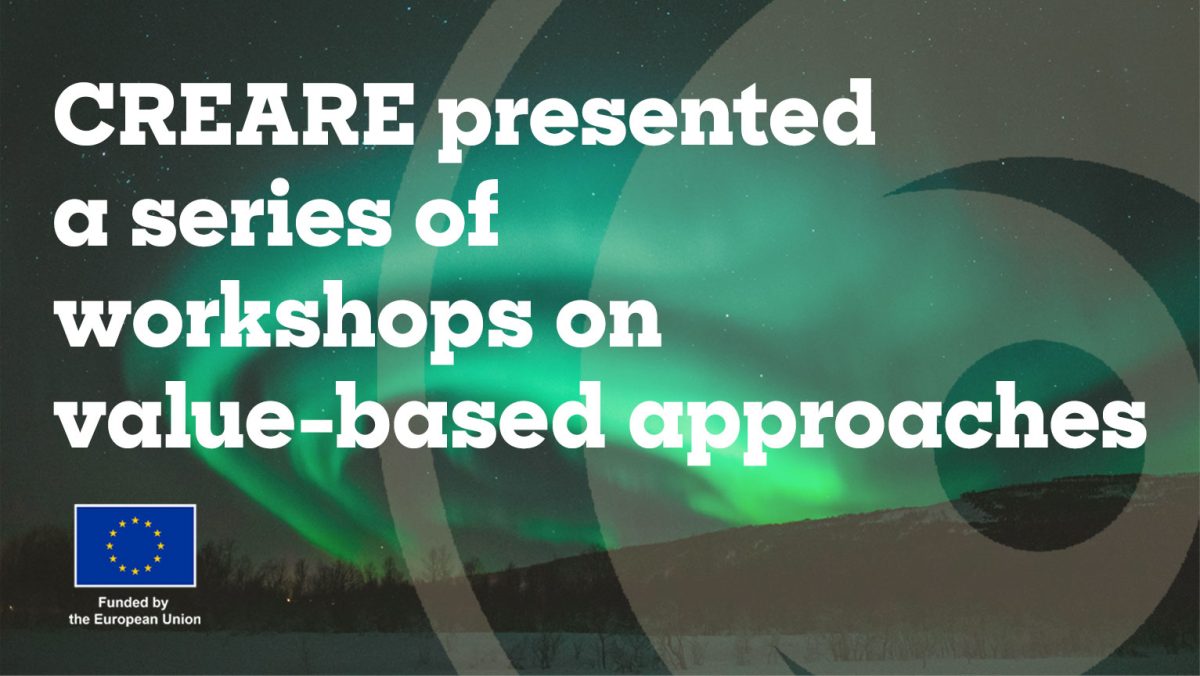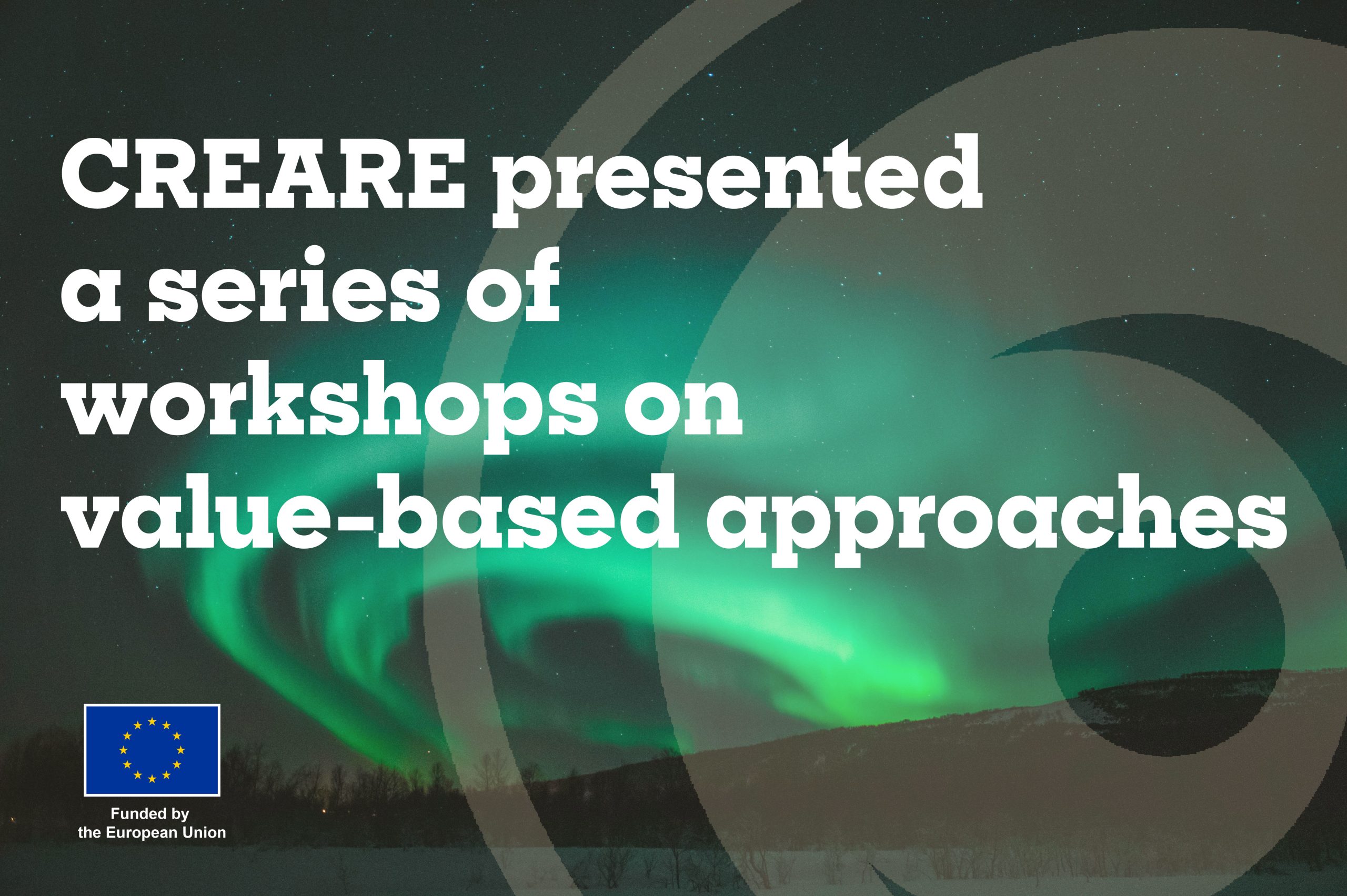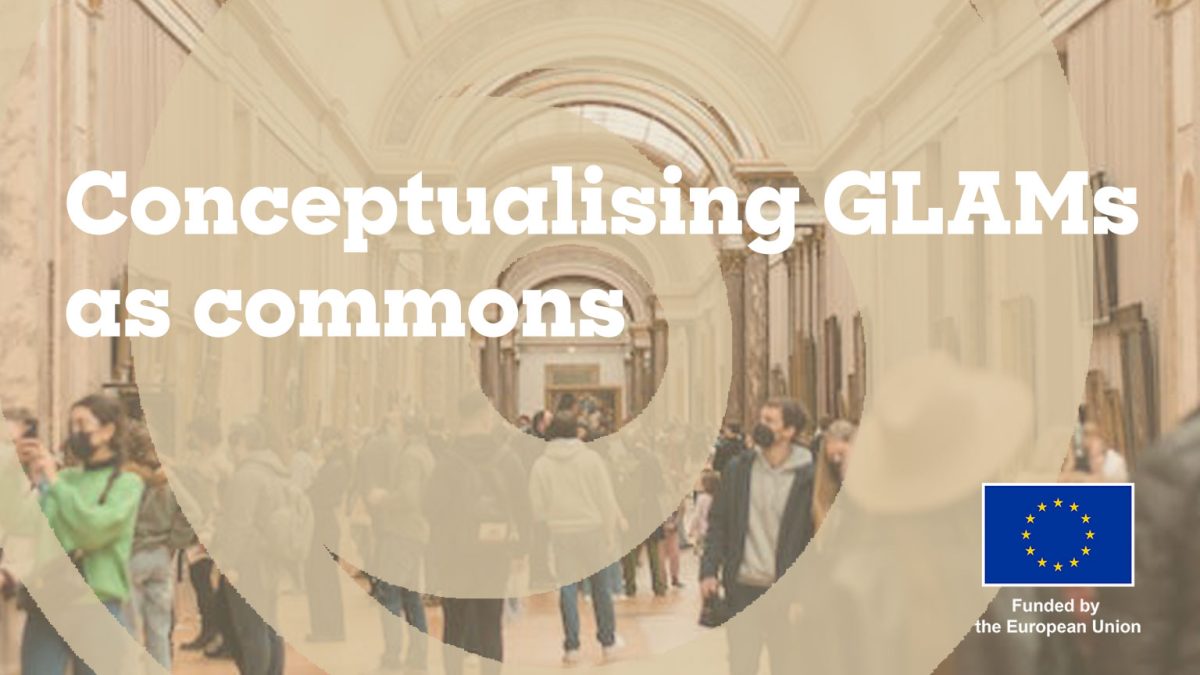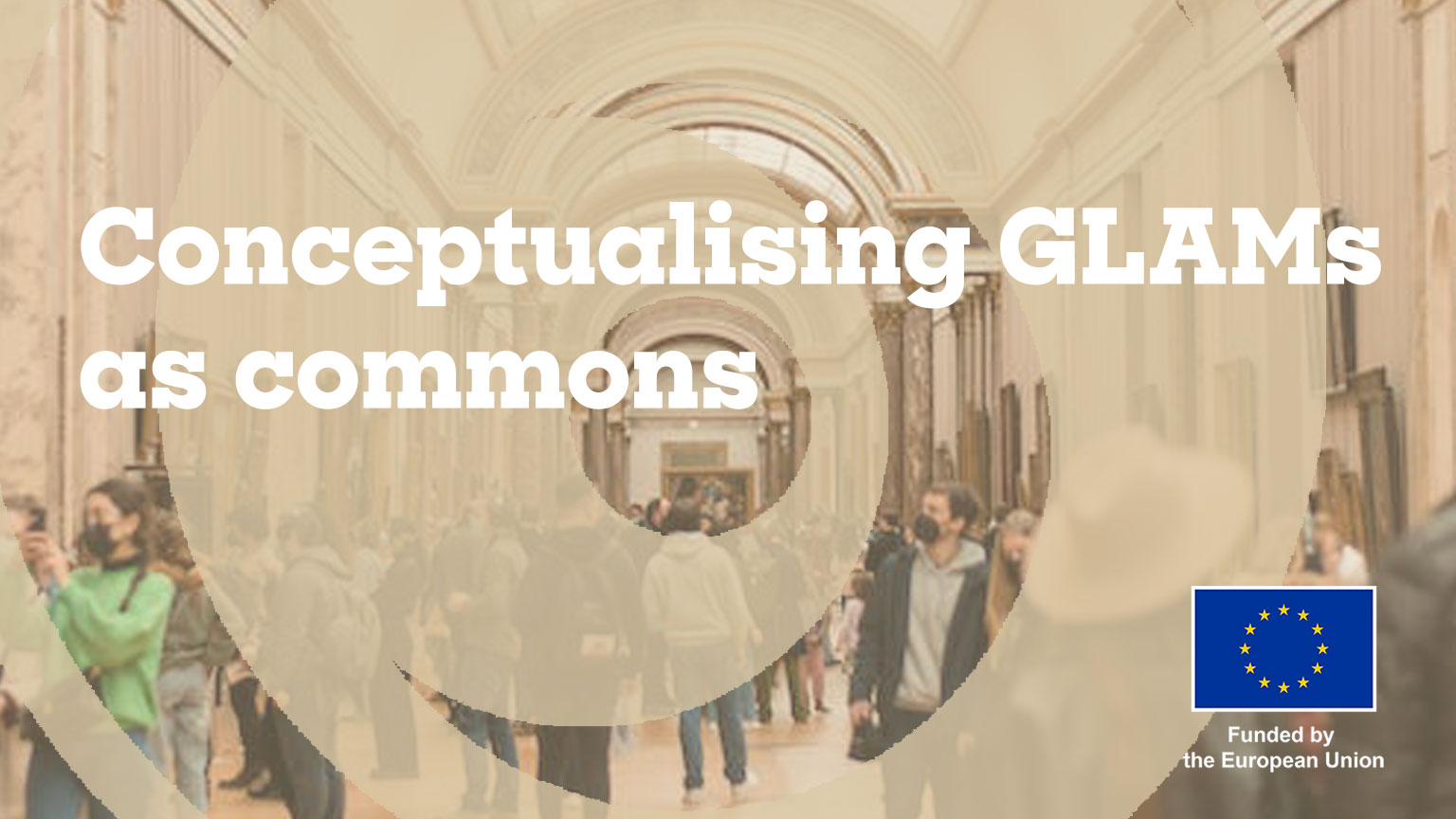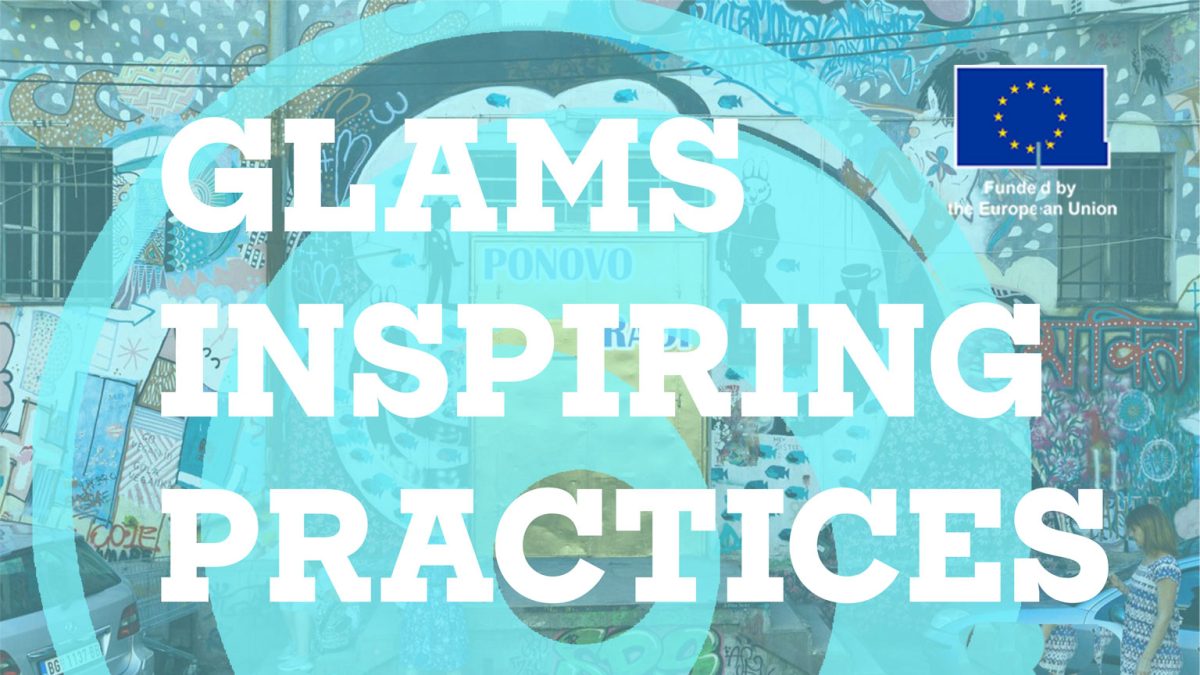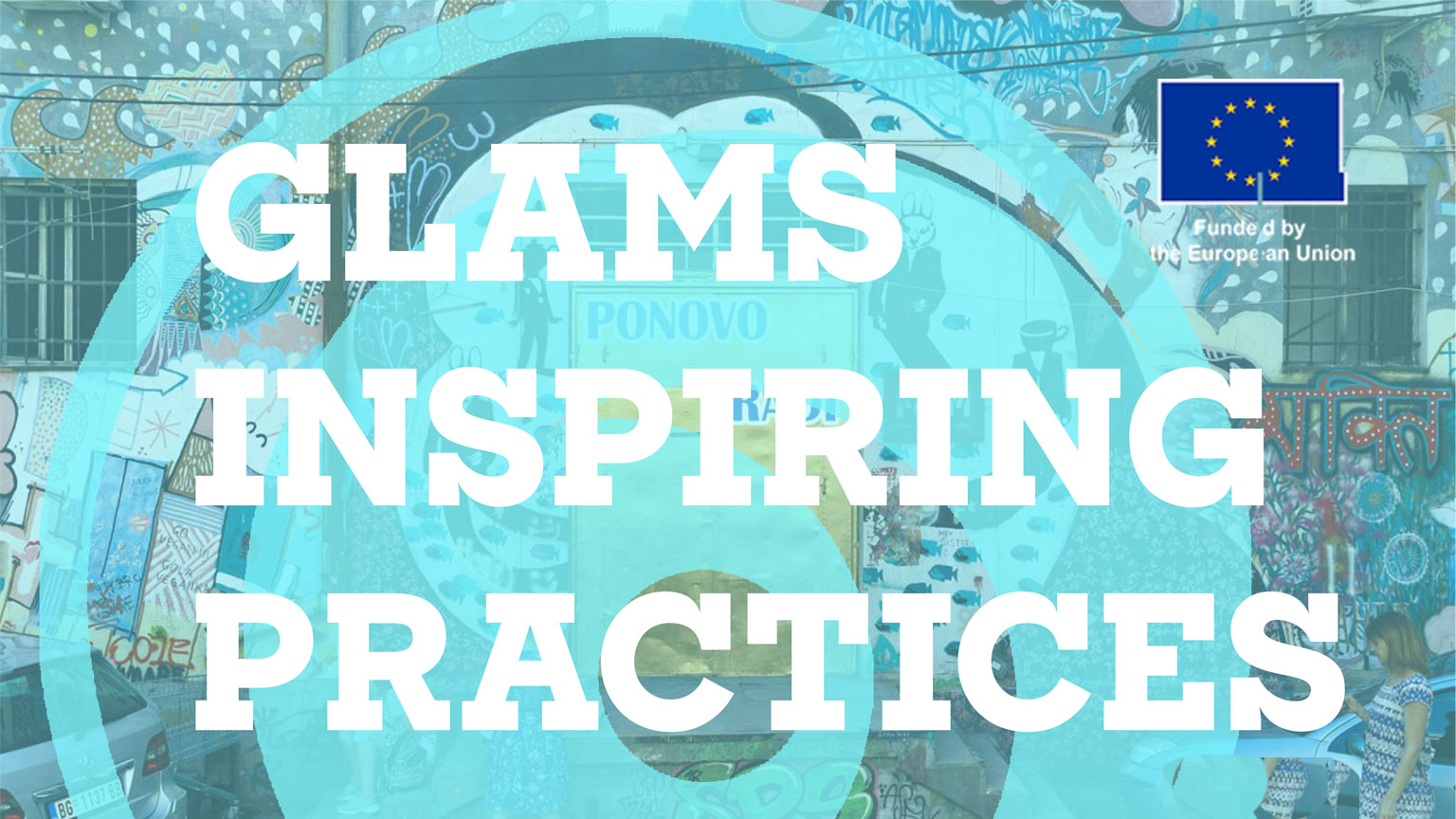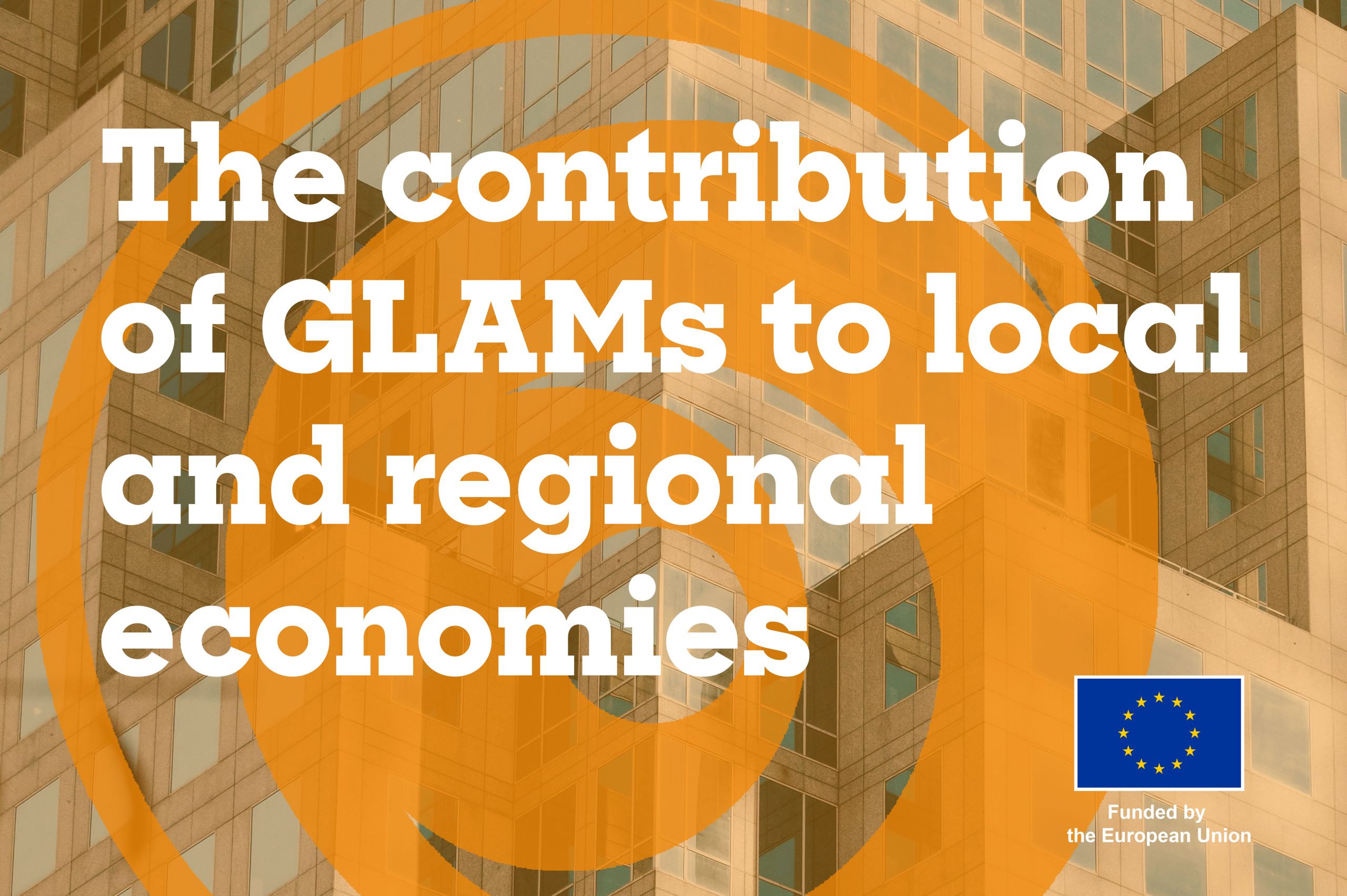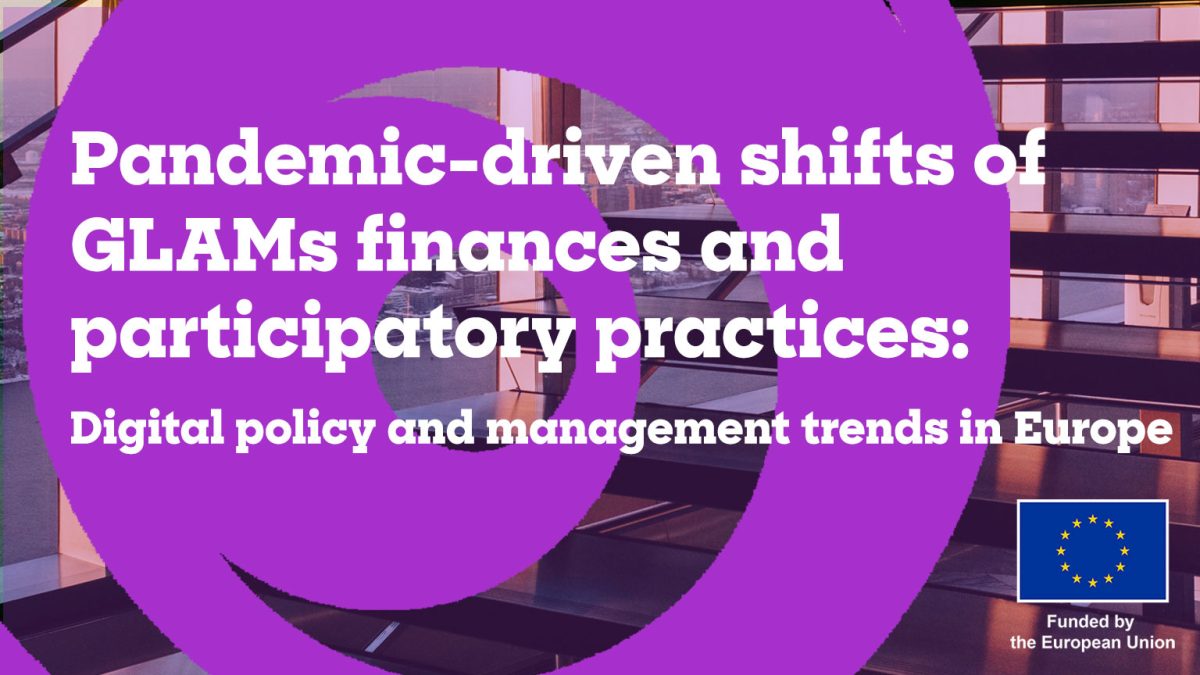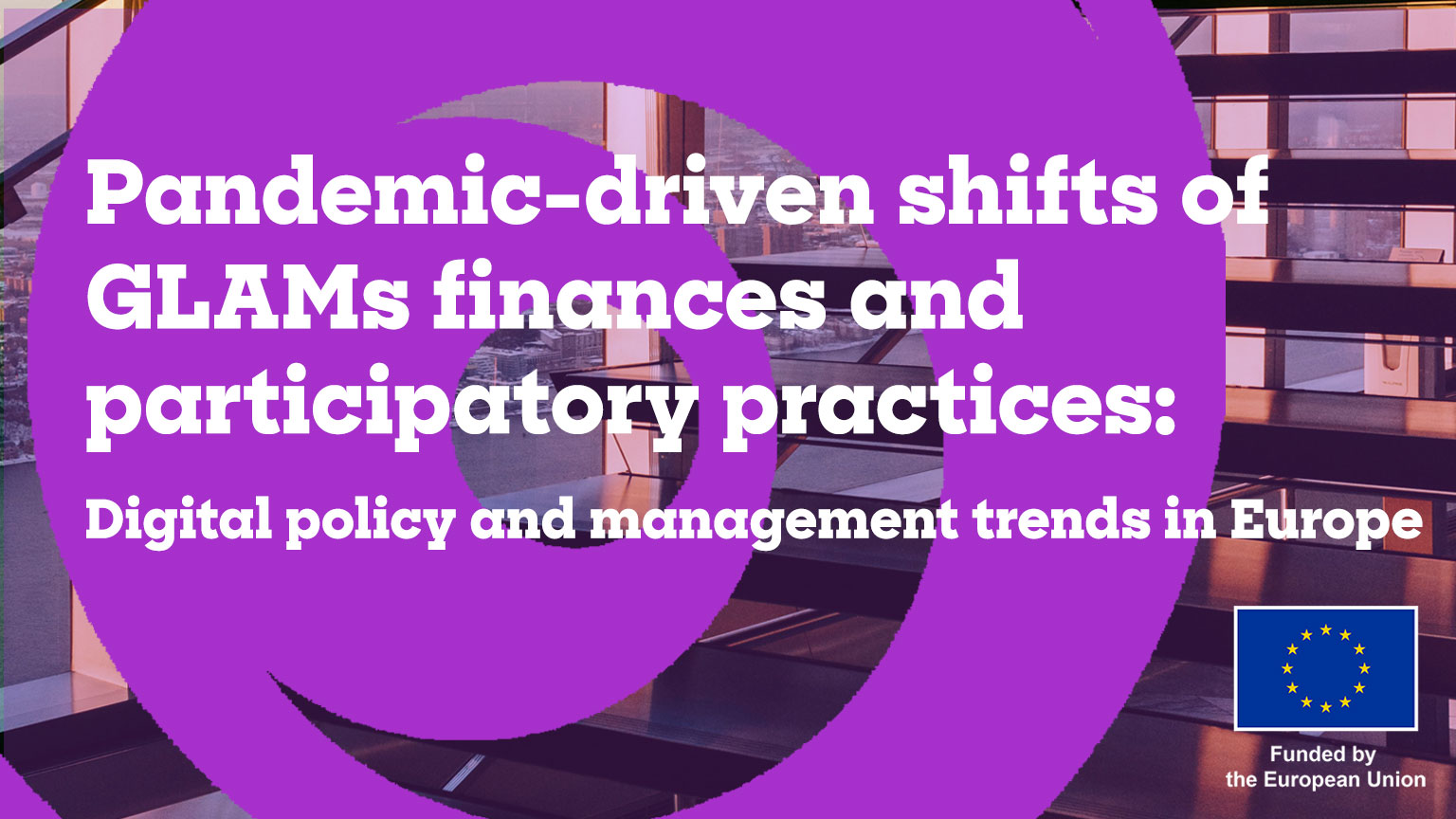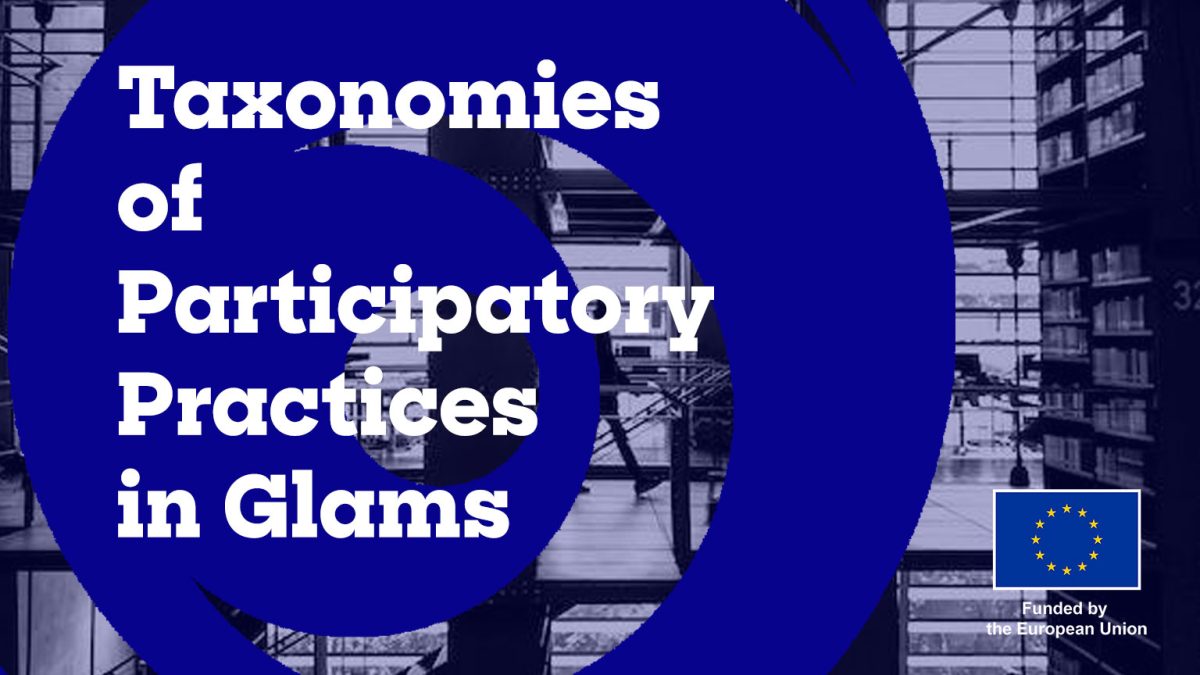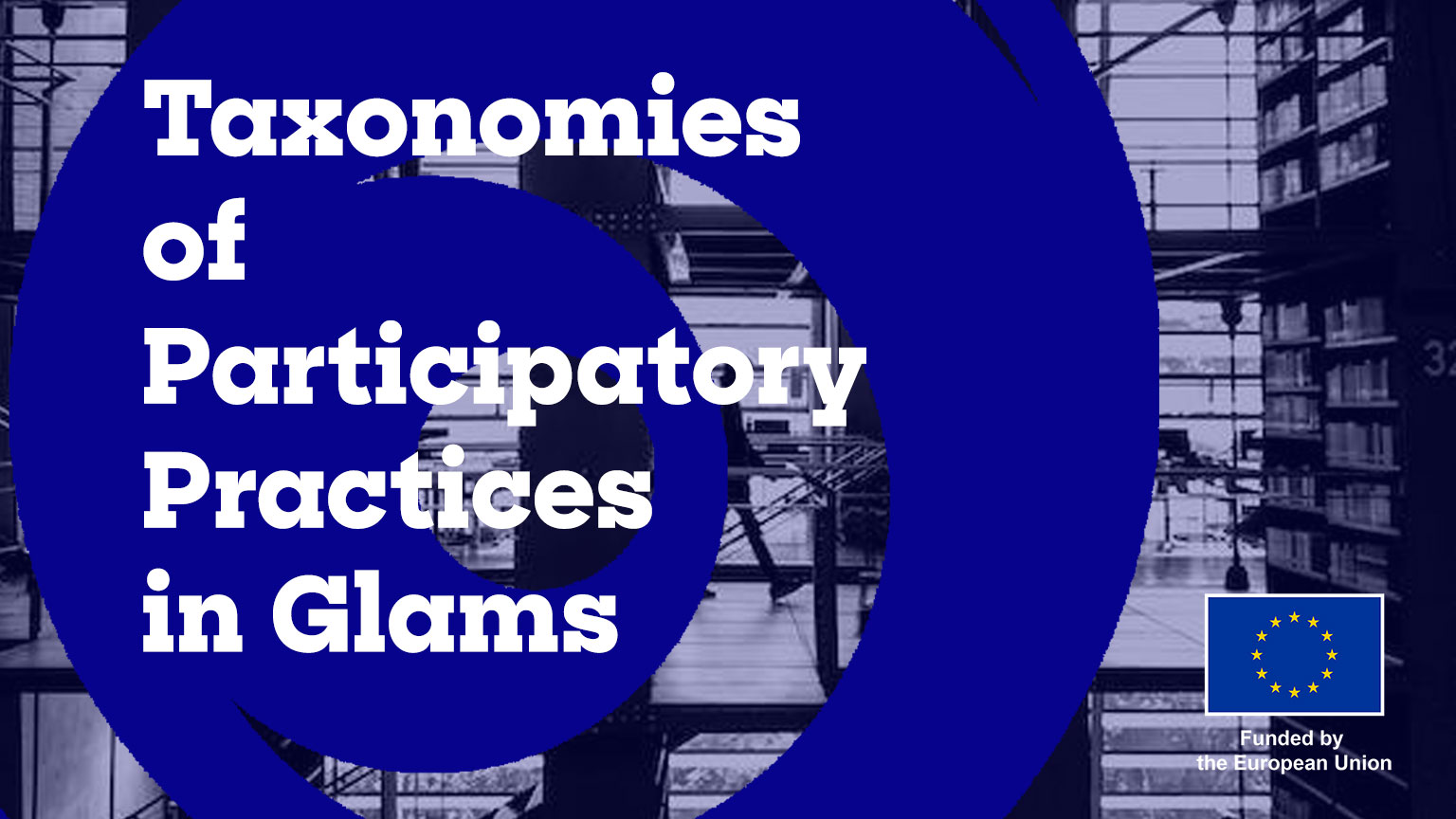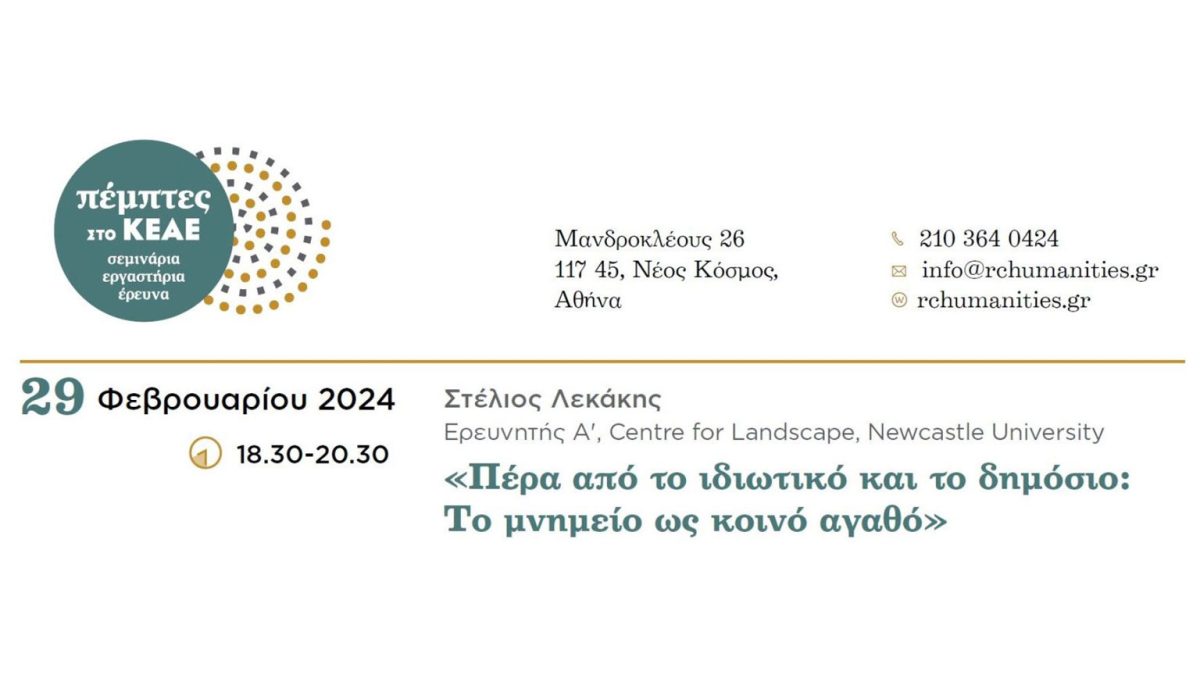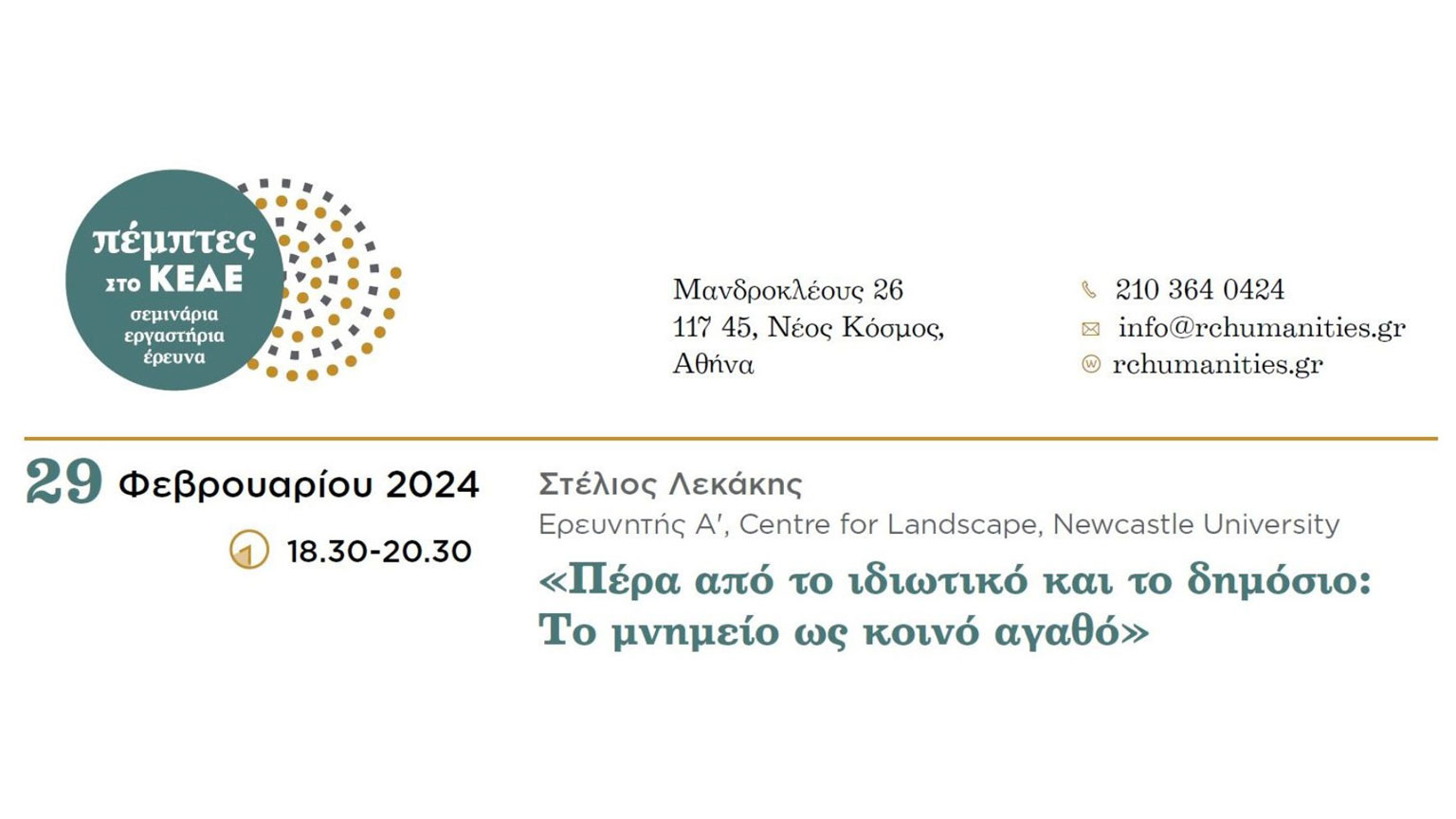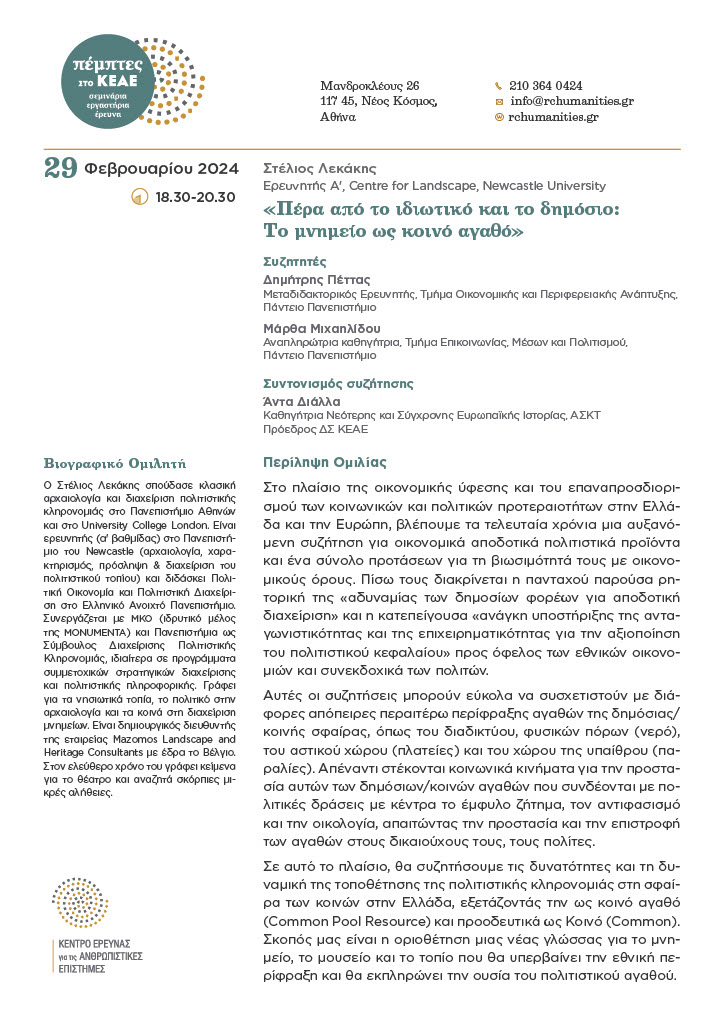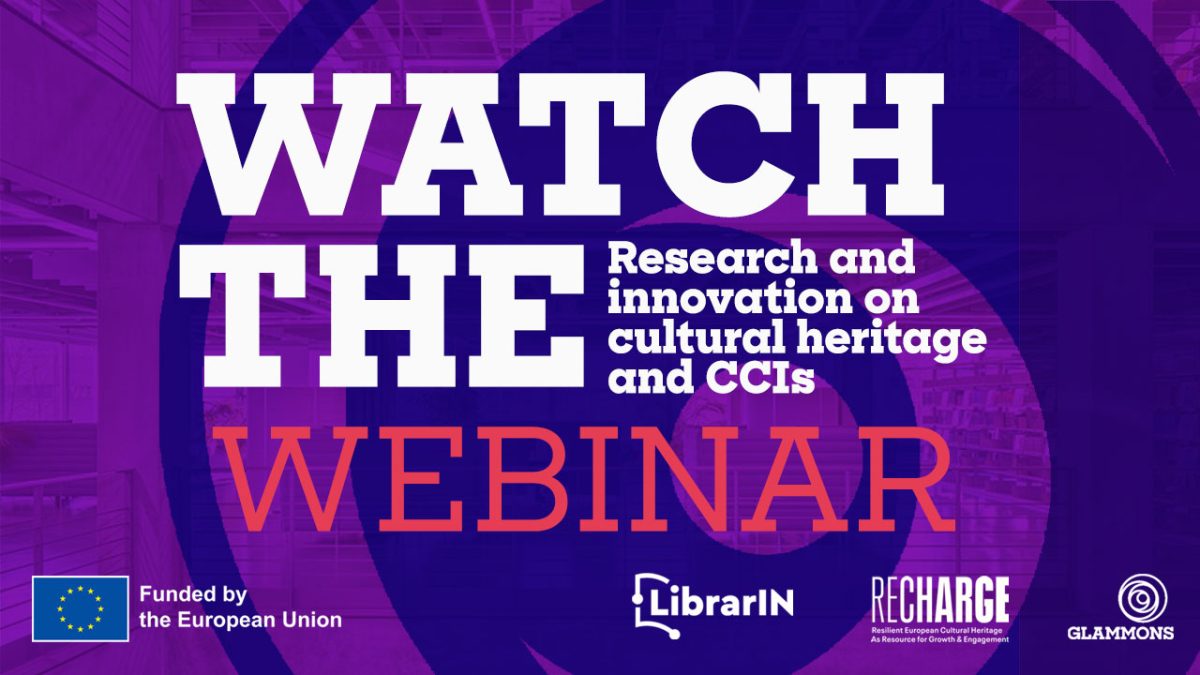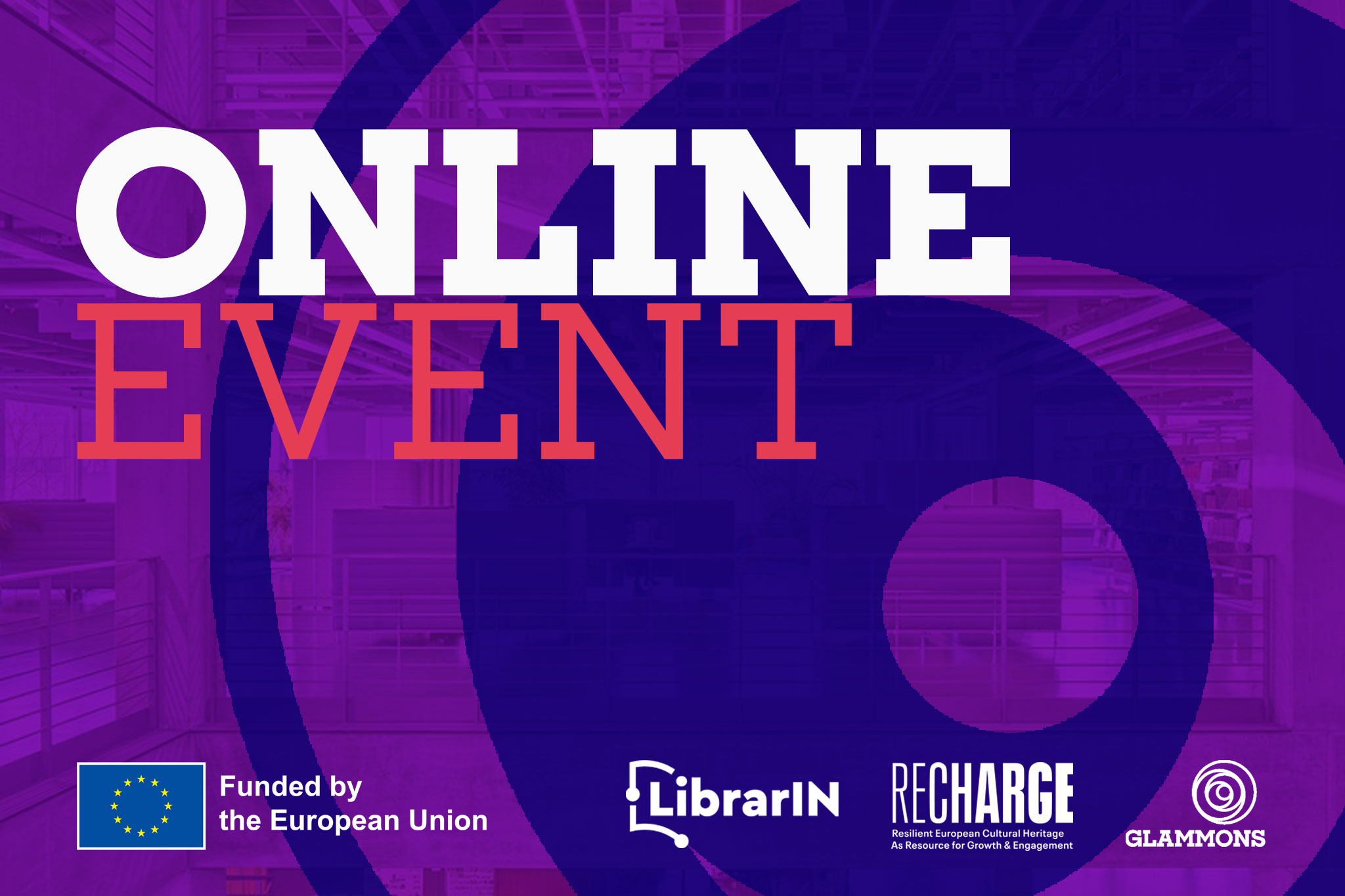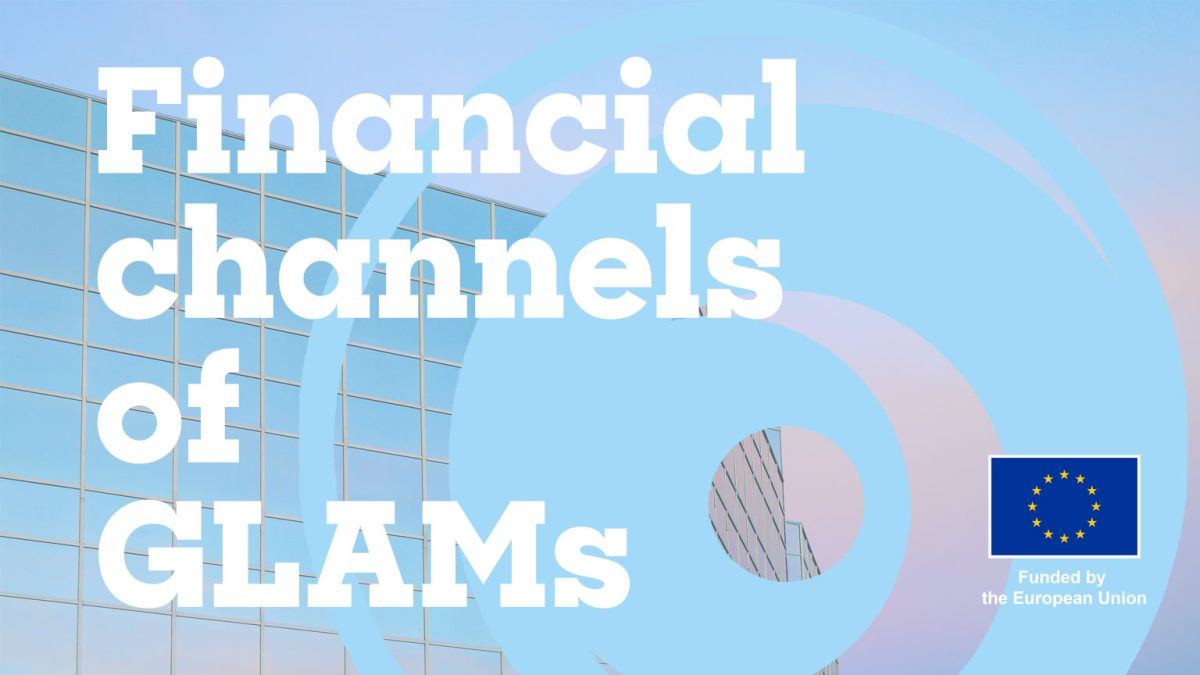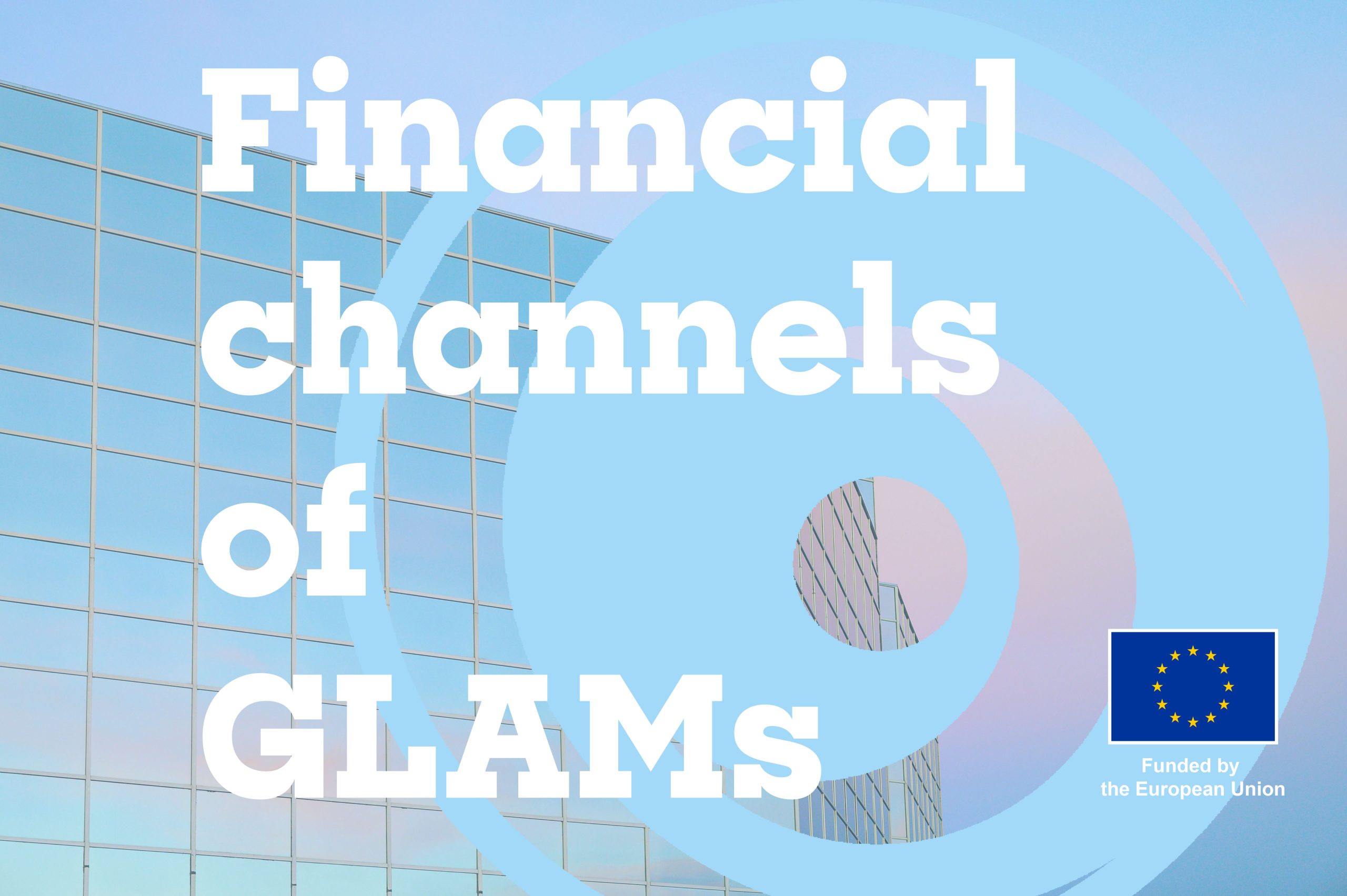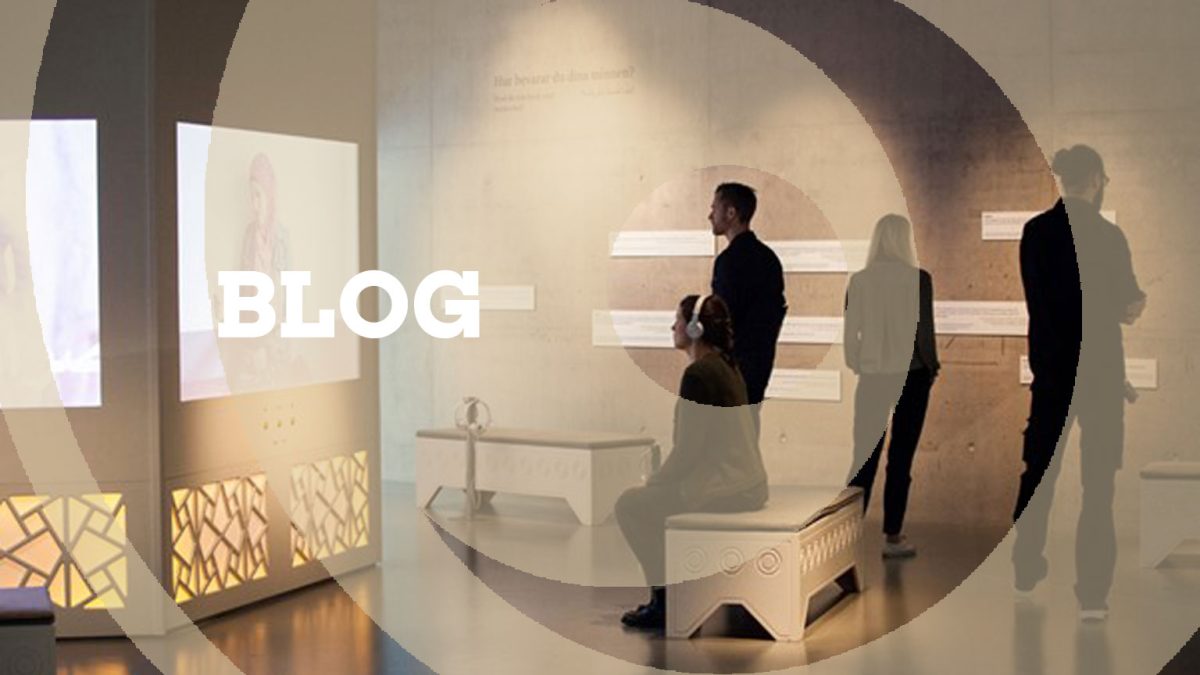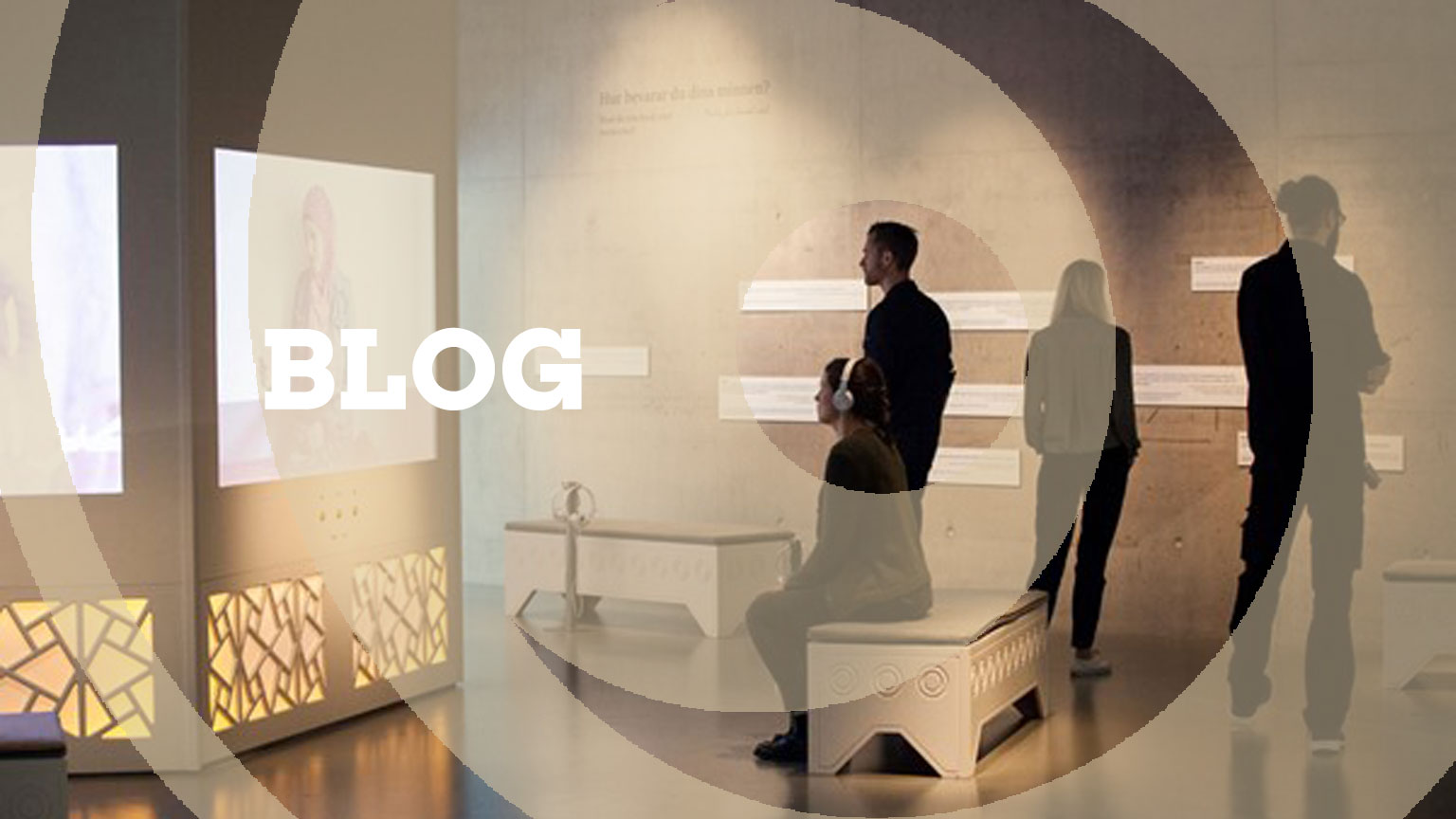a working paper by Stelios Lekakis (Mazomos) and Mina Dragouni (Panteion):
As digital technologies and online tools have become omnipresent in our everyday life, it is not surprising that they have found their way into cultural organisations missioned to preserve our cultural heritage, such as Galleries, Libraries, Archives, and Museums (GLAMs). This document explores digital policy and digital management trends in European GLAMs with the view to (a) increase our understanding of how digital work and tools have been embedded in the work of memory institutions and (b) to identify any pandemic-driven shifts that can inform future challenges and opportunities for the sector, particularly in relation to participatory practices and financial resilience.
GLAMs’ ‘digital practice’ includes those aspects of work within GLAMs that are performed through digital tools or realised on digital platforms (Sanderhoff, 2014). They include the development of collection databases and digitisation of content, digitally enhanced interpretation and curation of exhibitions and materials, as well as GLAMs’ digital presence (websites, social media) and digital offer in the form of online events, podcasts, virtual courses, and other outreach activities. Over the past two decades, memory institutions across Europe have set out to digitise and share their imagery of museum artefacts, works of art, and audiovisual archives through online digital infrastructures (e.g. OpenGLAMs, Europeana) or non-for-profit public-private partnerships (e.g. Google Arts), providing increased access to heritage and engaging the public in novel ways through special software and tools facilitating on-site and online visitors experiences (e.g. virtual tours, 3D representations, interactive games). However, as digital work is costly and labour intensive, national large-scale institutions were better positioned to harness their digitalisation potential as compared to peripheral, medium, or small-size cultural organisations. Prior to the pandemic, less prominent GLAMs were less agile to make sharp transitions to the digital realm due to limited resources and knowledge; a trend that seems to persist after the pandemic. They were driven to engage in digital work mostly to increase their visibility (NEMO, 2020a), often creating digital content as an online version of a physical exhibition (King et al., 2021).
Prior to the pandemic, the digital transition of GLAMs was largely dependent on their organisational size and, by extension, on their digital capacity and resources at hand. Thus, pre-pandemic digital investment became a critical factor for digital preparedness in the sector during the pandemic, by drawing on existing digital material. The forced closure of memory institutions brought to the fore existing issues in the sector, such as ‘lack of digital tools, gaps in skills and human capital, poor audience diversity, and weaknesses in coping with the digital transformation, and called attention to data collection and management’ (Dimitrova & Chatzidamianos, 2022: 37). Interestingly, there is limited data to support that GLAMs’ augmented online presence during the pandemic was accompanied by related increases of digital budget or labour force at organisation level. Rather, some preliminary evidence suggests that after GLAMs’ re-opening, pandemic-driven shifts did not maintain their digital ‘momentum’, apart from a sustained increased activity in social media. On the positive side, some early findings show that the pandemic did indeed accelerate digitisation and sharing of cultural data on aggregators, such as Europeana, where volumes of digital records substantially increased for several European countries during and after the pandemic crisis.
Regarding the post-pandemic digital landscape for the GLAM sector, a recent survey by Mowat et al. (2022) reports that only 20% of European GLAMs have distinct online/virtual audiences whereas only 2 out of 10 have devised a comprehensive strategy for digitising and cataloguing their collections, licensing and copyright, or general operations and management of their digital efforts. The lack of a solid digital strategy and vision coupled with understaffing and underfunding for several memory institutions expose some structural problems and challenges to realising the sector’s digitalisation potential. Furthermore, collections’ digitisation remains disconnected from an overarching participatory strategy across many GLAMs operating in the sector (Tartari et al., 2022). As argued, in the post-pandemic era, further institutional support, resources, and knowledge is still required so that best practices for engaging with digital audiences can become standardised in the sector and across smaller organisations that hold digital collections. In this way, ‘going digital’ would not be confined to a process that replicates the typical museum-audience relationship but will be seized as an opportunity for working towards a radically different relationship with user communities.
Download PDF
